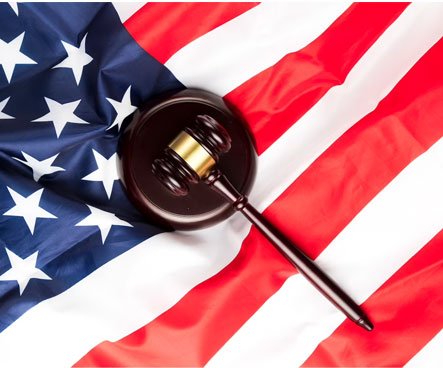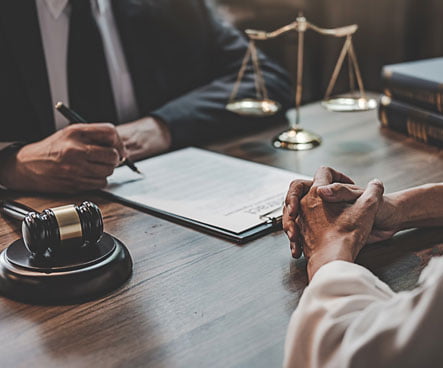Marietta Money Laundering Lawyer

Marietta Money Laundering Attorney
Whether at the state or federal level, money laundering is a serious criminal offense and can have severe consequences if found guilty. However, not all individuals accused of money laundering have malintent, which is why it is essential for your financial, professional, and personal reputation to contact a Marietta money laundering lawyer immediately if you or a loved one has been accused of money laundering.
What Is Money Laundering?
Money laundering is the process of deliberately concealing funds that were obtained illegally from criminal activity and making them appear as if they were generated from legitimate means. This is usually done to intentionally avoid income tax ramifications, also known as fraud, and is often accompanied by other criminal charges (the illegal activity of which the funds were obtained in the first place).
Money laundering can be very complex and is often hidden behind other layers of legitimate financial transactions or proceeds, which can make it difficult to detect and even more challenging to prove. In short, the offense involves disguising illegally obtained proceeds as legal funds.
What Are the Penalties for Money Laundering?
In Marietta, the penalties for money laundering can include imprisonment, fines, forfeiture, civil claims, and a damaged reputation. Money laundering is considered a felony offense, both at the state and federal levels. Given the seriousness of the offense, the penalties can be equally harsh. The legal and financial repercussions can vary depending on the overall severity or degree to which the laundering was committed.
Here are some of the consequences that the accused may be subject to if found guilty:
- Imprisonment: Anyone found guilty of money laundering charges may be subject to imprisonment, depending on the overall severity of the offenses. In Georgia, that can mean a prison sentence of up to 20 years.
- Fines: The exact fine amount for money laundering can vary depending on the particular amount of money involved in the illegal activity and the degree of awareness or intent of the guilty party. In some cases, fines can exceed millions of dollars.
- Forfeiture: The guilty party may be forced to forfeit any assets directly related to the money laundering activities, including property, cash, and other assets.
- Civil Claims: Separate from criminal claims, the defendant can also face potential civil legal action by the individual victims affected by the money laundering activities in an effort to receive restitution.
- Reputation: Convictions of money laundering can substantially damage the defendant’s reputation, both personally and professionally, and make it much more difficult for them to find future career opportunities.
Ultimately, the overall degree of punishment handed down to the guilty party, primarily concerning the imprisonment and monetary fines, is dependent on the total severity and complexity of the money laundering activities. However, in many cases, the guilty party’s reputation and the stigma that attaches itself to the individual convicted on money laundering charges can have long-term lasting effects.
How Can You Defend Money Laundering?
Common strategies used to defend money laundering may include the lack of intent, duress, insufficient evidence, or a violation of constitutional rights. As with any criminal case, there are multiple defense strategies that can be used by your defense attorney when it comes to money laundering charges. In many cases, multiple strategies can be used in order to construct a more comprehensive defense.
Here is a description of some of the common defense strategies used against money laundering charges:
- Lack of Intent: One of the most common and effective strategies of defense is demonstrating that the defendant was not knowingly aware that they had participated in illegal activities or that they were unaware of the money’s criminal origins.
- Duress: If the defendant was threatened or forced into participating in any money laundering activities, then they may be able to argue that they were coerced and only acted in such activities under duress.
- Insufficient Evidence: Ultimately, the burden of proof rests on the prosecution to show substantial evidence that the defendant knowingly and intentionally committed money laundering.
- Violation of Constitutional Rights: Any evidence that is acquired by the prosecution through illegal searches and seizures cannot be used against the defendant in court and may even be able to get the case dismissed altogether.
Other constitutional rights violations can include coercing confessions or conducting unlawful arrests.
Of course, the specific defense tactics chosen by your attorney will likely be dependent on the various unique circumstances of your case. There is no one-size-fits-all approach, so it’s important to consult thoroughly with your criminal defense attorney to ensure the most favorable outcome possible for your case.
FAQs About Marietta, GA Money Laundering Law
How Do I Fight a Money Laundering Charge?
Having experienced legal representation will, ultimately, give you the greatest chance to fight a money laundering charge. It is highly recommended that you first consult with a reputable law firm that has direct experience handling money laundering cases to ensure that you secure the most favorable outcome.
How Serious of a Crime is Money Laundering in Georgia?
Money laundering is considered an extremely serious crime, both in the state of Georgia, as well as in federal cases. Money laundering is classified as a felony offense and carries a maximum prison sentence of 20 years, in addition to a maximum fine of up to $500,000 for each charged transaction. The guilty party can also be subject to additional civil charges with potential monetary fines and loss of involved assets, not to mention the damages to the convicted party’s personal reputation and future employment opportunities.
What Is the Statute of Limitations for Money Laundering in Georgia?
According to Georgia state laws, the statute of limitations for money laundering is five years from the date the illegal activities were committed. This statute of five years is also the same under federal RICO money laundering charges. This is true for the vast majority of cases. However, there may be some extenuating circumstances that can affect the five-year statute of limitations.
How Do You Prosecute Money Laundering?
In short, in order to adequately prosecute money laundering charges, the government or prosecution must be able to legally prove that the guilty party knowingly or intentionally took part in money laundering activities and was aware of the illicit means by which the laundered money was originally obtained. They must also ensure that sufficient evidence is presented and that all legal processes are properly adhered to.
Consult With The Law Office of Lawrence J. Zimmerman
The Law Office of Lawrence J. Zimmerman has been diligently defending individuals accused of various crimes for over two decades and has direct experience winning money laundering cases in the state of Georgia. If you or a loved one has been accused of money laundering crimes, then it is crucial for the sake of your personal and professional future to consult with a reputable law firm that can fight on your behalf to ensure the most favorable outcome possible for your unique case.
Give us a call today or schedule a consultation with the team at The Law Office of Lawrence J. Zimmerman to evaluate your unique case.
Office Location
Meet With A Lawyer
Schedule A Consultation
Fields Marked With An “*” Are Required









